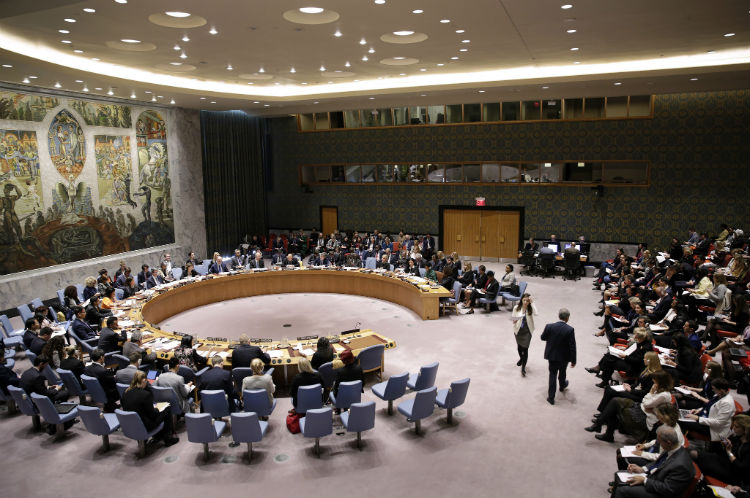June 26, 2018 Reading Time: 3 minutes
Your weekly digest of foreign policy commentary*
 Reading Time: 3 min read
Reading Time: 3 min readSian Troath highlights regional issues that Indonesia could promote in the UN Security Council. — Ryan Brown / flickr
Today is my last day as Editor of the Weekly Insights, as I step temporarily out of Sri Lanka’s shores to pursue further study. The “Weekly Insights” blog series was launched last year, and evolved from its earlier incarnation in 2016, the “Daily Brief.” My editorship of the Weekly Insights over the last several months has benefited enormously from readers’ support and feedback, including the suggestions to add a “Sri Lanka Commentary” section and the views of LKI researchers as our ‘Takes’ on foreign policy issues.
The Weekly Insights will be back in the capable hands of my colleague and new Editor, Adam Collins, after a brief time to develop a further improved format. I have greatly enjoyed and benefited from my time as the Editor of this series. I am grateful for the many messages of goodwill and suggestions, and I am immensely appreciative for the support I have received from LKI’s Executive Director, Dr. Dinusha Panditaratne, the writers, Malinda Meegoda and Barana Waidyatilake, and Communications Manager, Nuzaifa Hussain.
Anishka De Zylva
Modi’s Shangri-La Speech Offers Hope For India-SL Partnership in Indian Ocean Governance, DailyFT, by Sandeep Gopalan, Deakin University
“Modi used the occasion to call for a rules-based order—recalling previous views espoused by Sri Lankan PM Ranil Wickremesinghe.”
LKI Take: Prime Minister Modi’s call for a regional rules-based order—based on dialogue and consent—is to be welcomed. India’s commentators on strategic issues will hopefully also uphold this approach; some have recently negated it and/or mistaken a draft code of conduct issued by a non-governmental organisation to be an initiative of the Sri Lankan government.
When Indonesia Sits on the Security Council, The Interpreter, by Sian Troath, Flinders University
“Winning the non-permanent seat is not only a soft-power victory in itself, but also provides an invaluable opportunity for Indonesia to achieve its goals of peace and security … ”
LKI Take: Sri Lanka was last a non-permanent member of the UNSC in 1961. The benefits of a UNSC seat are controversial, but Sri Lanka should consider how to develop its diplomatic capacity to (i) bid for, and (ii) effectively use such a seat, including to build its ‘brand’ as a neutral and peaceful centre of the Indian Ocean.
Refugees Are A ‘Win-Win-Win’ Formula for Economic Development, The Brookings Institution, by Dany Bahar
“[I]f given the right protections and support, refugees can be an asset—not a burden—for all countries involved”
LKI Take: Despite popular fears, Germany’s experience indicates it is unwise to assume that an influx of refugees leads to more crime. The number of criminal offences committed in Germany is at its lowest since 1992, despite accepting its peak number of asylum seekers in 2015.
*Written by Malinda Meegoda and Barana Waidyatilake and edited by Anishka De Zylva. The opinions expressed in these Weekly Insights are not the institutional views of LKI, and do not necessarily reflect the position of any other institution or individual with which the authors are affiliated.